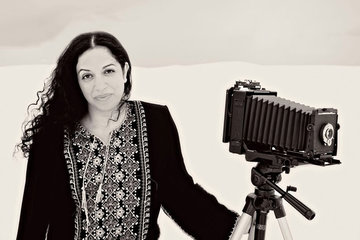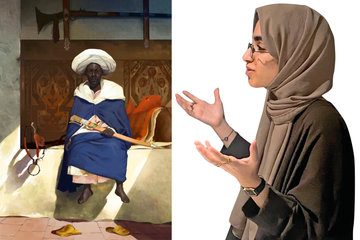
The "AlUla, Wonder of Arabia" exhibition has recently opened at Beijing's Forbidden City, a UNESCO World Heritage Site. In collaboration with the Royal Commission for AlUla, the Palace Museum, and the French Agency for AlUla Development, the exhibition offers an enthralling voyage across 200,000 years of common human history and 7,000 years of varied civilizations in AlUla.
Originally displayed at the Arab World Institute in Paris from October 2019 to March 2020, the current edition, curated by archaeologists Laila Nehme and Abdulrahman Alsuhaibani, emphasizes AlUla's historical and cultural richness. Approximately 50 previously unseen items among the 236 exhibits are showcased, providing a unique experience for visitors.

The exhibition immerses visitors in AlUla's history, featuring recently unearthed artifacts, prehistoric animal bones, sculptures, pottery, rock paintings, inscriptions, bronze artifacts, multimedia installations, and works by photographer Yann Arthus-Bertrand. The chronological layout guides exploration through the topographical nuances and environmental contexts that shaped early human settlements in AlUla, with themed stops at the primary heritage sites: Dadan, Hegra, Qurh, and Old Town.

Dadan's ruins reveal a wealth of sculptures, offering insights into the prosperity of the Dadan and Lihyanite dynasties. Hegra, a UNESCO World Heritage Site, showcases well-preserved stone-carved facades of tombs and funerary monuments, reflecting the grandeur of an ancient city.
The exhibition also emphasizes AlUla's historical role as a vital trade hub along the ancient Incense Road, connecting the Arabian Peninsula with China. This historical trade facilitated the exchange of Chinese silk and ceramics to the Arabian Peninsula and Arabian frankincense to China.
Abdulrahman Altrairi, Chief of Communications and PR at the RCU, highlights AlUla's significance in Saudi Arabia's Vision 2030 plan, expressing delight in sharing its historical and cultural treasures with a Chinese audience. The exhibition seeks to increase AlUla's notoriety on a global scale and promote cultural, artistic, touristic, and archaeological exchanges between China and Saudi Arabia.

According to Lou Wei, Executive Vice President of the Palace Museum, the exhibition will enhance cultural exchanges and increase people-to-people connectivity as part of the Belt and Road Initiative. First Secretary of the French Embassy in China, Simond de Galbert, praises AlUla's desire to promote its heritage globally, noting that China's hosting is a distinguished springboard.
The opening ceremony, attended by notable figures including the Saudi ambassador to China, marked the beginning of the exhibition, open to visitors at Beijing's Forbidden City until March 22.

















